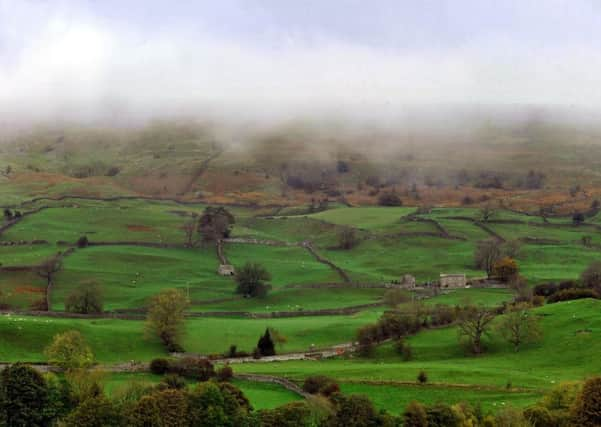Post-Brexit commission starts work to find answers to rural problems


Sir Ian Cheshire, chairman of Barclays UK, said the role of the Food, Farming and Countryside Commission, which begins work today, will be to look at creating a safe, secure and sustainable food system as the nation’s agricultural policy is dictated by Whitehall for the first time since Britain’s membership of the European Union began in 1973.
The banking boss vowed that the commission will listen to countryside groups and devise solutions to improve public health, sustainability and rural communities outside of the EU’s Common Agricultural Policy.
Advertisement
Hide AdAdvertisement
Hide AdThe commission is run by independent charity the RSA (the Royal Society for the encouragement of the Arts, Manufactures and Commerce) and it will present its findings to the Government.
Sir Ian said: “We rely on the countryside even when we don’t see it; not only for food but so much we take for granted, like clean water. It’s part of who we are. We have come to depend on EU laws and money but they haven’t been working well enough, and they are set for the biggest shake-up in a generation.
“Farmers groups, conservation charities and others are already putting huge thought into this. But they don’t have all the answers and might not agree. The role of this Commission is to learn what other people want, as well as the established experts, what’s working in the communities around the country, to come up with some creative answers and find a way through.”
In a prospectus published today the commission outlines changes in the UK’s food, farming and countryside since 1973 to demonstrate the challenges facing policymakers. It states that over the past 40 years, the UK has come to depend on rules and money from Brussels.
Advertisement
Hide AdAdvertisement
Hide AdHighlighting how farming profitability relies on subsidies, the document explains that of the £3.6bn made by UK farms last year, £3.1bn came from EU payments.
It also cautions that less than half of fruit and vegetables consumed in the UK is homegrown, and 90 per cent of that depends on EU-born workers on UK farms.
Making the case to address this dependency effectively, Sue Pritchard, the RSA’s director of the new commission, said: “Less than a fifth of Britons live in the countryside, yet everyone relies on it for food, clean water and more.
“The UK is a net exporter of meat and biscuits and a global leader in food manufacturing, but we rely on imported fruit and veg. We’re at the vanguard on environmental technology but are one of the most wasteful countries in the world. And while some consumers have huge choice in organic and fresh veg, the impact of poor diets in the UK means for too many the reality is the modern day breadlines of food banks, which means little fresh food.”
Advertisement
Hide AdAdvertisement
Hide AdThe commission’s inception has been welcomed by the Tenant Farmers Association, whose chief executive George Dunn said: “It is essential that we build a new consensus around the future of food, farming and the countryside both to inform Government and ourselves about the next steps we should take in policy and practice.”
Also today, the president of the National Farmers’ Union will tell the Green Conservatism Conference in London that homegrown food production can be enhanced under a new domestic agricultural policy.
Meurig Raymond said: “Leaving the EU should be a catalyst for a clear vision and a much needed food plan and Government must take of advantage of this.”
ADDRESSING A DISJOINTED SYSTEM
The newly formed commission represents a perfectly-timed, once-in-a-generation opportunity for people and communities to influence the role of food in their lives, according to its funders at the Esmée Fairbairn Foundation.
Advertisement
Hide AdAdvertisement
Hide AdThe grant-making charity’s chief Caroline Mason said the Foundation was offering financial backing to drive the commission’s work because it believes there are ways to produce higher quality food that are better for people and the environment.
“Our support for 170 sustainable food initiatives over the past 10 years has shown us that the food system is disjointed, but that many people want the chance to make it better,” Ms Mason said.